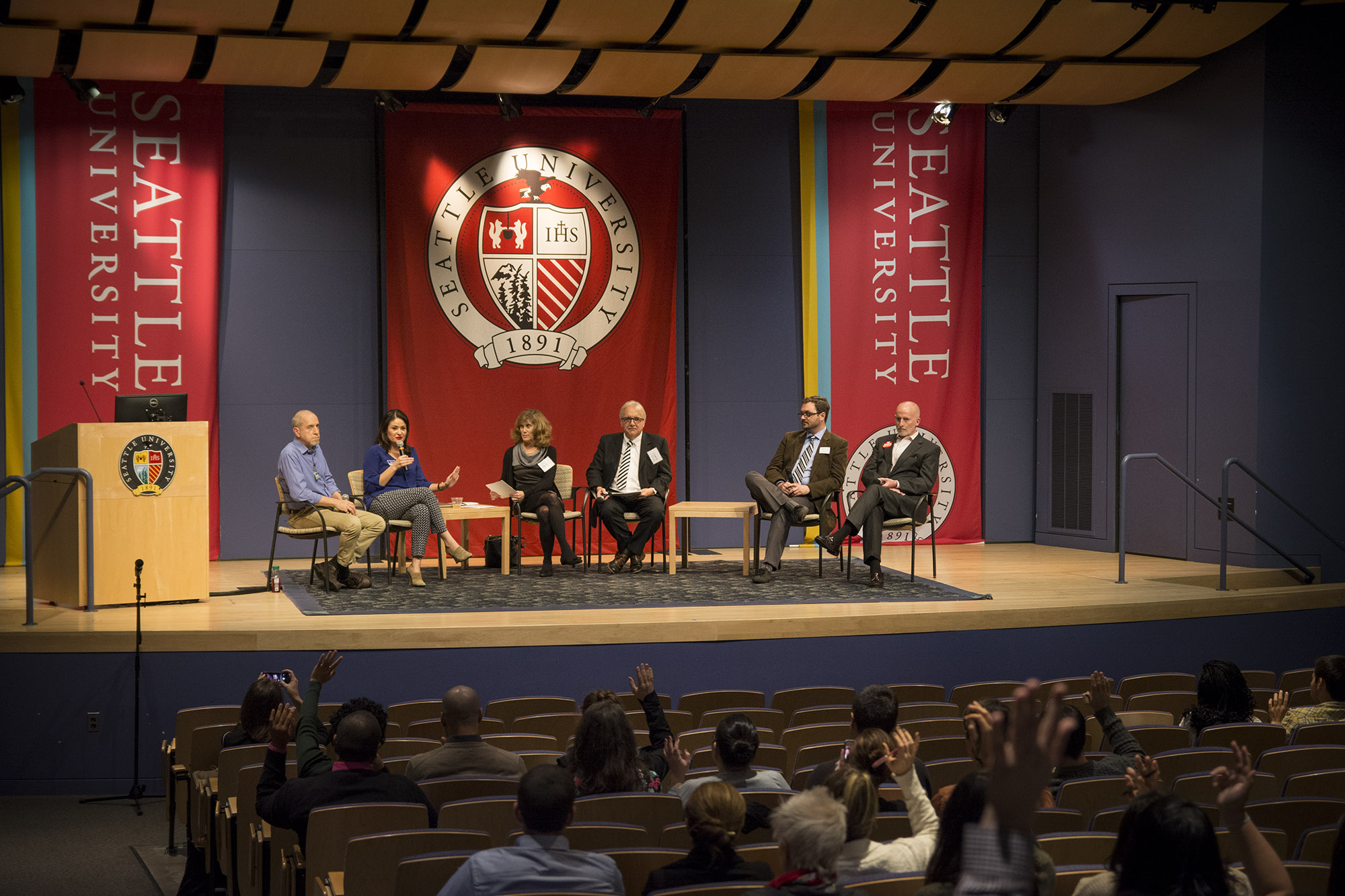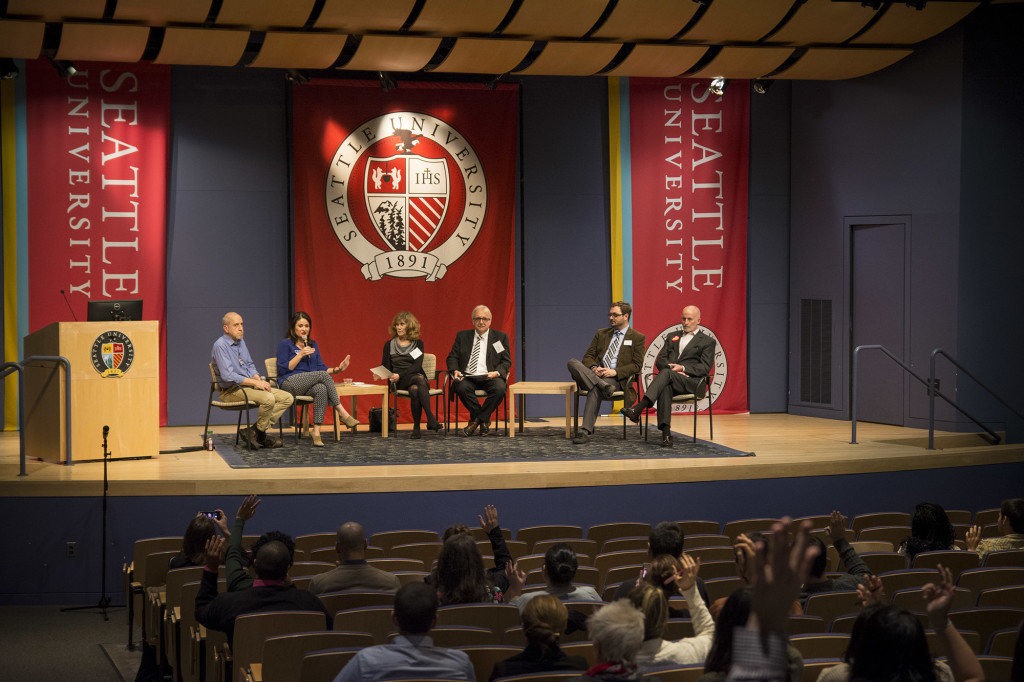With the Seattle City Council elections only a week away, Seattle University held a forum on Oct. 20 where the at-large candidates were interviewed and attendants had the opportunity to ask their own questions.

Candidates for the City Council of Seattle came to speak to the Seattle University members about issues that are relative to todays city population
The event was meant to both give the audience a better understanding of the issues Seattle citizens are facing and allow them to voice concerns to the candidates.
“I think that it is important to have an informed vote,” said freshman Sarah Eaton. “That is why I am here, to understand who I am voting for.”
Sponsored by the Bachelor of Public Affairs program, the Masters of Public Administration Student Association, the Dean’s Office of Arts and Sciences and the Seattle University Student Government, the event drew a large crowd of people interested in the city’s affairs.
Attendants heard from Position 8 candidates Tim Burgess and Jon Grant and Position 9 candidates Bill Bradburd and Lorena Gonzalez. The candidates come from a variety of backgrounds and levels of experience. Burgess is the current Council President and is running for his third term. During his time on the Council ,he helped to implement the $15 minimum wage in Seattle.
As affordable housing is one of the biggest problems facing Seattle citizens today, it was a major topic at the forum.
“It will be interesting to get an idea where each candidate stands on the issue and what they plan to do,” said sophomore Christina Meile.
On the issue of rent control, candidates first discussed the recent resolution passed by the City Council that asks the state legislature to “repeal or modify” the ban on rent control. Lifting the ban would give more local and direct control about housing issues to the Seattle City Council.
All candidates were in favor of the resolution and of rent control, however, as the Executive Head of the Tenants Union, Grant was adamant that the council should have taken this action sooner.
“The landlord lobbyists have too much influence both in Olympia and City Hall,” said Grant. “My campaign has put pressure on the City Council and on my opponent to support the passage of a resolution calling on the state of Washington to repeal the ban.”
Gonzalez said she believes that it would allow the council to take measures like limiting the percentage by which the rent can be increased, the time of year it could be increased and other factors that would help affordability.
As the current Council President who wrote the resolution, Burgess advocated for “local control for local solutions.”
Bradburd, a neighborhood activist, offered an alternative if the state did not give local control over rent. He proposed creating a stabilized lease environment, emphasizing fairness to both the tenant and landlord.
Another issue the candidates discussed was the Seattle Police Department, as the Department of Justice has found a pattern of excessive force used by the SPD.
“Not all officers are bad, but bad cops do need to be held accountable. I do agree that we need more police officers as our city grows. Hiring officers that are trained well and that will comply with the constitution will be my priority,” said Gonzalez, who is a Civil Rights attorney.
Burgess pointed to the new police chief, Kathleen O’Toole, changes in training and a new oversight body as being successful in working towards accountability and a change in culture of the SPD.
But Grant said he feels that this change was “glacial” and that reform like civilian oversight was needed to ensure impartialness when looking at cases of misconduct.
Corporate expansion was another concern, with Bradburd leading the conversation. He linked this rapid expansion to the growing housing crisis.
“The problem with [corporate expansion] is that they are not hiring people from here, they are importing workers. Those people put a demand on the housing supply that does not keep up with the growth,” Bradburd said.
He suggested using a Linkage Fee that would have companies pay into the development of housing to help mitigate the negative effects of corporate expansion.
The attendees were then given the opportunity to ask their own questions to the candidates. Attendees brought up topics such as the gun and ammo tax, the growing rat population in Seattle, and public restrooms, which the candidates each responded to.
Junior Madeline Olson thought the event got right to the important questions that everyone wanted to hear about, such as affordable housing in Seattle.
“I’m glad Seattle University holds events like this,” said Olson. “It keeps people engaged.”
The next forum in this series of talks will be on Feb. 11 with the chief of the Seattle Police Department, Kathleen O’Toole.
Editor may be reached at news@su-spectator.com








